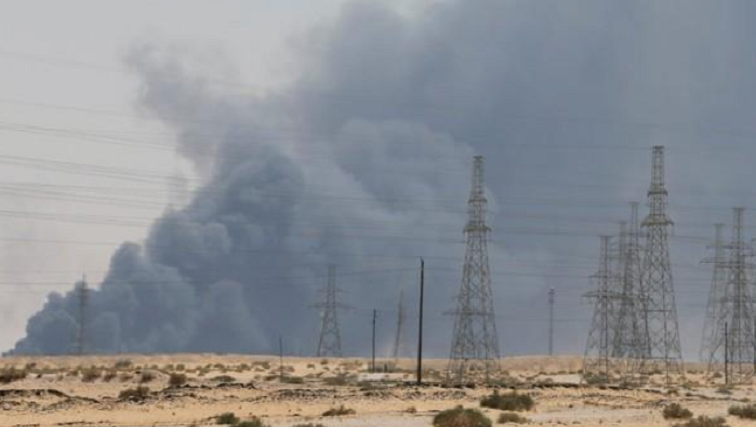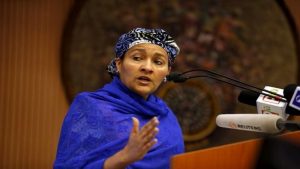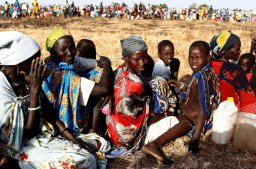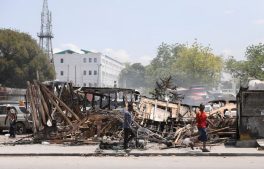The United Nations Secretary General has condemned attacks on oil facilities in the Eastern Province of the Kingdom of Saudi Arabia, causing a spike in global oil prices and concerns of a further military escalation in the region.
United States President Donald Trump earlier warned that they were “locked and loaded” while his Secretary of State blamed Iran for the attack – an accusation Tehran has rejected.
Houthi Forces – also known as Ansar Allah and fighting in neighbouring Yemen against a Saudi-led coalition – have claimed responsibility for the attacks and are threatening more attacks on Saudi infrastructure.
The drone attacks are reported to have knocked out half of Saudi Arabia oil production – the most severe blow against the Kingdom in the over four years of their involvement in Yemen’s civil war.
The UN Envoy for Yemen, Martin Griffiths, was addressing the Council via videolink from Geneva.
“This is frankly terrifying and is an eventuality which runs completely counter to the many and detailed conversations I have had in recent weeks in favour of a series of steps to be taken by the parties towards de-escalation. It is not entirely clear who was behind the attack, but the fact that Ansar Allah has claimed responsibility is bad enough. And whatever we will discover of the attack, it is a sure sign that Yemen seems to be moving even further away from the peace we all seek. Everyday the war goes on, the greater the threat to regional stability. We need to take a bold move.”
President Trump didn’t mention Iran by name in his tweet, deferring to a Saudi investigation to establish responsibility, but warned the United States was locked and loaded.
His newly-arrived United States Ambassador to the UN, Kelly Craft, says, “The United States condemns these attacks in the strongest possible terms standing firmly with our Saudi friends. We must all be clear-eyed about this event – a direct assault on the world energy supply. Claims of responsibility have been made but as Secretary of State Mike Pompeo has clearly stated, there is no evidence that the attacks came from Yemen. Emerging information indicates that responsibility lies with Iran.”
A spokesperson for Iran’s Foreign Ministry rejected the accusation of blame while Iraq has denied that its territory was used to launch the attacks.
South Africa’s Ambassador Jerry Matjila cautioned that only a political solution and not a military one, was needed in Yemen – calling for a de-escalation.
“We condemn the attack on the Saudi Arabia oil facilities, and we call on the countries in the region to (de-)escalate the tensions that might damage the security and stability of the Gulf region and the global energy supply and security as well as security of maritime trade.”
The United Kingdom’s Ambassador Karen Pierce has called the attacks reckless and totally unjustifiable, but has indicated that they were still assessing responsibility.
“It is only sheer luck that no one was killed and not by any design of the perpetrators. Threatening civilian areas and commercial infrastructure is a violation of international law, as well as being dangerous and provocative and I’m sure that all members of the Council will want to join in condemning these attacks today as a clear threat to regional and international peace and security. But also as an effort to disrupt global oil supplies. At the moment, we’re still assessing what happened and who is responsible for the attacks. Once this has been established, we will discuss with our partners how to proceed in a responsible manner. We hope (for) a united international response to these awful attacks.”
China, for its part, has called on the parties to the conflict to resolve their differences through dialogue and negotiation and to avoid any further escalation.






